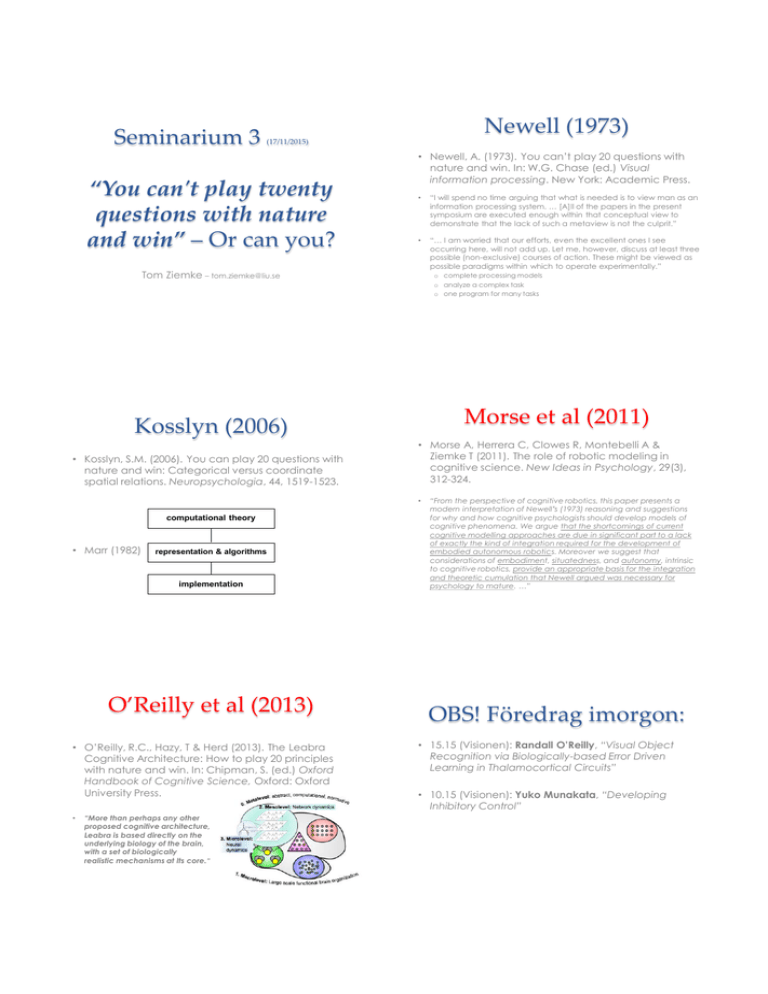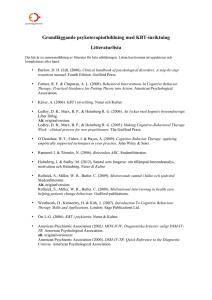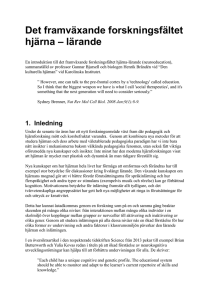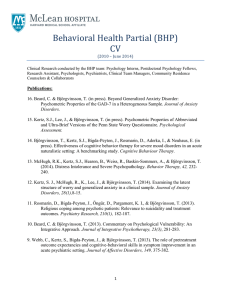Newell (1973) Seminarium 3 “You can't play twenty
advertisement

Seminarium 3 Newell (1973) (17/11/2015) “You can't play twenty questions with nature and win” – Or can you? • Newell, A. (1973). You can’t play 20 questions with nature and win. In: W.G. Chase (ed.) Visual information processing. New York: Academic Press. • “I will spend no time arguing that what is needed is to view man as an information processing system. … [A]ll of the papers in the present symposium are executed enough within that conceptual view to demonstrate that the lack of such a metaview is not the culprit.” • “… I am worried that our efforts, even the excellent ones I see occurring here, will not add up. Let me, however, discuss at least three possible (non-exclusive) courses of action. These might be viewed as possible paradigms within which to operate experimentally.” Tom Ziemke – tom.ziemke@liu.se Kosslyn (2006) • Kosslyn, S.M. (2006). You can play 20 questions with nature and win: Categorical versus coordinate spatial relations. Neuropsychologia, 44, 1519-1523. o complete processing models o analyze a complex task o one program for many tasks Morse et al (2011) • Morse A, Herrera C, Clowes R, Montebelli A & Ziemke T (2011). The role of robotic modeling in cognitive science. New Ideas in Psychology, 29(3), 312-324. • computational theory • Marr (1982) representation & algorithms implementation O’Reilly et al (2013) • O’Reilly, R.C., Hazy, T & Herd (2013). The Leabra Cognitive Architecture: How to play 20 principles with nature and win. In: Chipman, S. (ed.) Oxford Handbook of Cognitive Science, Oxford: Oxford University Press. • “More than perhaps any other proposed cognitive architecture, Leabra is based directly on the underlying biology of the brain, with a set of biologically realistic mechanisms at Its core.” “From the perspective of cognitive robotics, this paper presents a modern interpretation of Newell’s (1973) reasoning and suggestions for why and how cognitive psychologists should develop models of cognitive phenomena. We argue that the shortcomings of current cognitive modelling approaches are due in significant part to a lack of exactly the kind of integration required for the development of embodied autonomous robotics. Moreover we suggest that considerations of embodiment, situatedness, and autonomy, intrinsic to cognitive robotics, provide an appropriate basis for the integration and theoretic cumulation that Newell argued was necessary for psychology to mature. …” OBS! Föredrag imorgon: • 15.15 (Visionen): Randall O’Reilly, “Visual Object Recognition via Biologically-based Error Driven Learning in Thalamocortical Circuits” • 10.15 (Visionen): Yuko Munakata, “Developing Inhibitory Control” Frågor att diskutera • Håller du med Newell om hans beskrivning? • Stämmer den (också) idag? Om ändring, har det blivit bättre eller sämre? • Hur relevant är Newells forskningsperspektiv för kognitionsvetare utanför universitetet? • Håller du med Kosslyn om hans kritik mot Newell? • Varför är egentligen Kosslyn och Newell inte helt överens? o båda betraktar ju kognition som någon slags beräkning/computation • Vilka är konsekvenserna för kognitonsvetenskapen som helhet?


